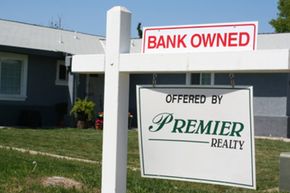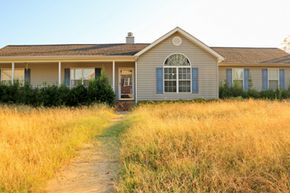If you own a house right now, it's a good possibility that there's at least one bank-owned home in your neighborhood. For many of us, it's all too obvious. Maybe you witnessed the painful process of owners being evicted from their home. Or you've just seen the signs: a for-sale sign with a "bank owned" tag or an unoccupied house and yard slowly falling into disrepair.
Foreclosures don't just hurt the people who lost their home; they also hurt the community. They make the value of your house (which has probably already dropped) go down. The overgrown yard and peeling paint tell criminals that the house is abandoned, so it's an open invitation for theft of valuable items like copper wiring or for pure vandalism.
Advertisement
How did this happen? It's a long story, but here's a part of it. In the late 2000s, the economy in the United States entered a serious economic downtown (now deemed a recession by some economists). Lots of people got laid off or lost their jobs and were unable to pay their mortgages. Some of them probably shouldn't have been able to obtain a mortgage in the first place -- they didn't have the income to support it, or they had bad credit histories or other things that meant their mortgage was considered risky, known as a sub-prime mortgage. They had high interest rates and usually adjustable ones, at that. When the rates adjusted upward, the payments became too big to manage. If you can't pay your mortgage, your bank owns the house and you're out of there. Even worse, it turned out that some lenders faked loan paperwork or illegally handled foreclosure proceedings.
There were record high numbers of foreclosures in the past few years, so many that the banks couldn't process them all. And they weren't always able (or willing) to maintain the houses that they did own. Builders were also unable to complete the communities they were constructing. The result? Abandoned homes, partially-finished homes and people who bought into a brand-new community and found themselves marooned in a sea of empty lots.
As of this writing, reports indicate that a new wave of foreclosures, stalled by many of the issues we mentioned above, could occur in 2012. While we can't solve the country's financial crises, there are things we can do in the meantime to help rebuild the communities that have been hit by the foreclosure crisis. They fall into three main categories -- we'll start with trying to keep people in their homes.
Advertisement





